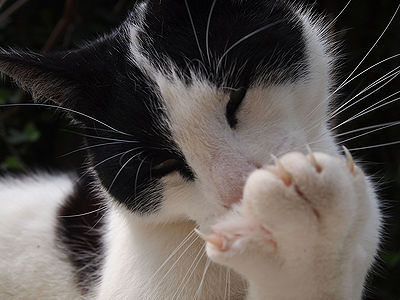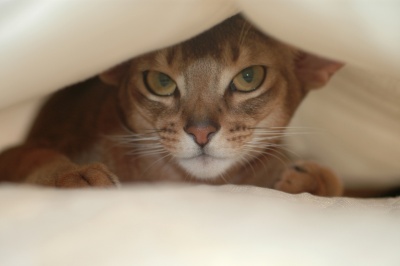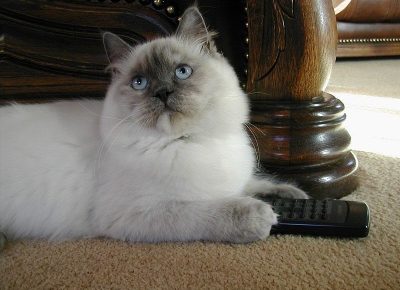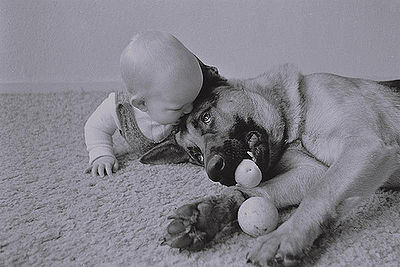
Does your cat act strangely, such as grooming continuously, beyond normal limits? S/he may have OCD, Obsessive-Compulsive Disorder. The American Veterinary Medical Association (AVMA) cites environmental and social stresses as the main factors causing OCD in cats.
It’s normal for cats to groom themselves, even in stressful situations. But when grooming continues well after the stressful situation is resolved, OCD can be the cause. Some cats will overly groom themselves if they have allergies, infections, wounds, fleas or ticks. Your cat should be seen by the vet to rule out any medical problem.
When kittens are removed from mama cat too early, they lose out on important skills and the comfort of nursing. Kittens should remain with mama cat for at least 12 weeks. Often adult cats will turn to sucking on wool to ease stress. This can pose a danger as ingesting the wool can cause blockages. To replace suckling as kittens, some cats chew on themselves or another cat’s fur. To decrease the behavior, you can offer your cat a safe toy or distract him/her with play. There is a commercial product available called the Catrifier. It’s a pillow with “nipples” on one side, a cat’s pacifier and it may work to calm your cat. Remove any objects your cat chews on or any you don’t want him/her to chew on.
Some cats will race around the house and show rippling of the skin on the back muscles (feline hyperesthesia). When the cat stops, s/he will bite the skin of the back.
Other cats will howl loudly at night. Older cats often exhibit this behavior as well.
There are holistic remedies available to ease your cat’s OCD such as Bach’s Rescue Remedy for Pets. Before using any essences or oils, check with your vet to make sure they are safe, as cats are very sensitive to some of these remedies.



